Digital Literacy

How has the rise of digital banking affected the need for financial literacy ?
The rise of digital banking has significantly affected the need for financial literacy. As more and more people turn to online banking platforms, it becomes essential for them to have a basic understanding of financial concepts and practices. In this article, we will explore how digital banking has influenced the importance of financial literacy and what individuals can do to improve their financial knowledge.

What role does financial literacy play in reducing economic inequality ?
Financial literacy is a crucial factor in reducing economic inequality, as it enables individuals to make informed decisions about their money and increase wealth accumulation. Improving financial literacy can lead to reduced poverty rates by empowering low-income households to make smarter financial choices. Strategies for improving financial literacy include educational programs, access to financial services, and community outreach initiatives. By implementing these strategies, we can create a more equitable society where everyone has the opportunity to achieve financial stability and prosperity.
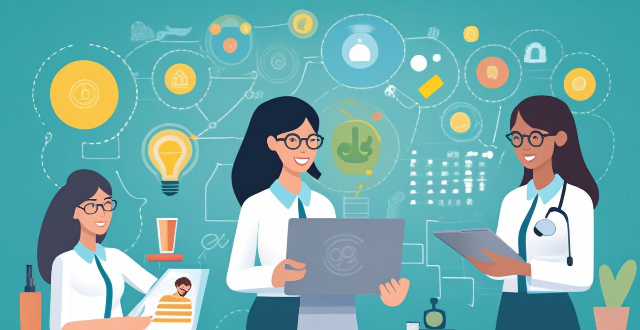
What challenges do women face in achieving scientific literacy, especially in developing countries ?
Scientific literacy is crucial for individuals to understand and make informed decisions about the world around them. However, women in developing countries face numerous challenges in achieving scientific literacy due to various socio-economic and cultural factors. These include a lack of access to education, economic barriers such as poverty and limited job prospects, gender stereotypes and bias in teaching methods, family pressures and responsibilities like child marriage and household chores, inadequate infrastructure, and a technological divide. Overcoming these challenges requires concerted efforts from governments, educational institutions, NGOs, and communities to promote gender equality in science education. By addressing socio-economic barriers, changing cultural perceptions, improving infrastructure, and bridging technology gaps, we can create an environment where women can achieve scientific literacy and contribute fully to the advancement of science worldwide.
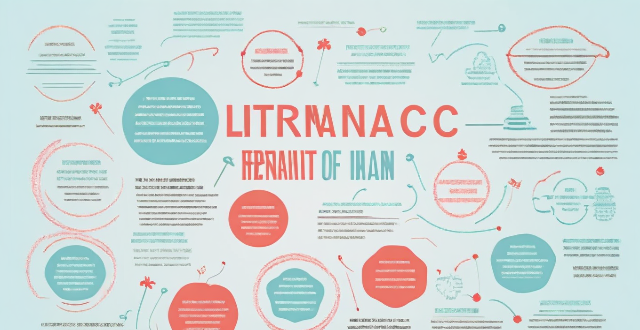
What is the relationship between physical literacy and child development ?
Physical literacy is crucial for child development, enhancing cognitive, social, emotional, and physical dimensions of learning. It improves memory, attention, problem-solving skills, communication, cooperation, empathy, self-esteem, resilience, muscle strength, cardiovascular health, and reduces the risk of chronic diseases. Incorporating regular physical activity into children's daily routines promotes their overall growth and well-being.
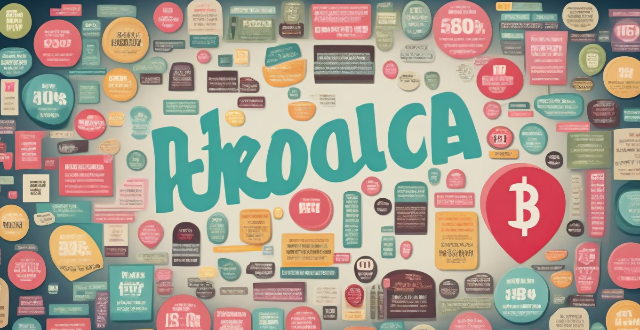
What are some effective methods for teaching financial literacy to young adults ?
Financial literacy is a crucial life skill that every young adult should possess. It involves understanding how to manage money effectively, make informed financial decisions, and plan for the future. Here are some effective methods for teaching financial literacy to young adults: start with the basics, use interactive learning tools, encourage real-world practice, and provide access to financial professionals.

How does scientific literacy among women vary across different countries and cultures ?
This article explores the variations in scientific literacy among women across different countries and cultures. It highlights the factors that influence scientific literacy, including education, socio-economic status, cultural norms, and access to resources. The article also discusses the implications of these variations for society as a whole, such as health outcomes, economic development, and environmental sustainability efforts. Finally, it emphasizes the importance of promoting scientific literacy among women through targeted education programs and initiatives that address the specific challenges faced by women in different cultural contexts.

Can celebrity influence be harnessed for educational purposes or promoting literacy ?
This article explores the potential of leveraging celebrity influence for educational purposes and promoting literacy. It outlines how celebrities can advocate for education, serve as role models, and directly involve themselves in educational initiatives. The text also suggests ways celebrities can promote literacy, such as hosting reading challenges, authoring children's books, and endorsing online courses. Overall, the article concludes that celebrity influence can be a powerful tool for fostering a culture of learning and literacy.

What role do education and literacy play in advancing women's rights ?
Education and literacy are fundamental rights that play a crucial role in advancing women's rights. They empower women, enhance their decision-making abilities, and enable them to participate fully in society. Education and literacy provide women with the knowledge and skills necessary to make informed decisions about their lives. Educated women are more likely to delay marriage and childbearing, have fewer children, and make better health choices for themselves and their families. Education and literacy increase women's economic opportunities by enabling them to access better jobs and higher incomes. Educated women are more likely to be employed in professional or skilled positions, which leads to greater financial independence and bargaining power within households. Educated women are more aware of their health rights and are better equipped to make decisions related to their own health and well-being. They have improved access to healthcare services, understand the importance of preventive care, and are less likely to suffer from diseases associated with poverty and lack of education. Education and literacy enhance women's political engagement by providing them with the necessary knowledge and skills to participate actively in the political process. Educated women are more likely to vote, run for office, and hold leadership positions. Their increased political participation leads to policies that promote gender equality and address issues affecting women and girls. Education and literacy help to break down gender stereotypes and promote social equality between men and women. When women are educated, they are more likely to challenge discriminatory practices and traditions that limit their rights. Educated women are also more likely to advocate for gender equality in their communities, leading to a more equitable society for all.

What are some effective strategies for promoting climate literacy in schools ?
Effective strategies for promoting climate literacy in schools include integrating climate education into the curriculum, encouraging student inquiry and critical thinking, using technology and multimedia tools, collaborating with community organizations and experts, fostering a culture of sustainability, and assessing and evaluating climate literacy programs. These strategies aim to help students develop a comprehensive understanding of climate change, its impacts on society and ecosystems, and the strategies to mitigate and adapt to it.
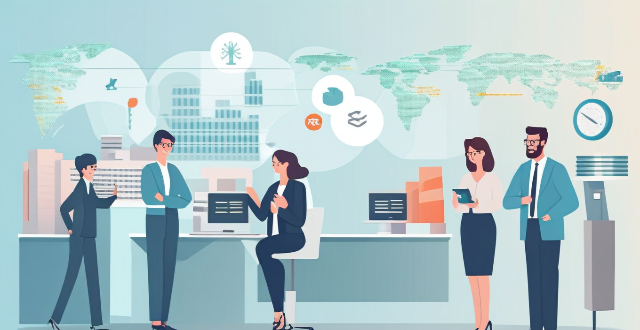
How has the COVID-19 pandemic highlighted the importance of financial literacy ?
The COVID-19 pandemic has underscored the importance of financial literacy. It helps people navigate job losses, market volatility, personal finance management, long-term planning, and healthcare needs. Financially literate individuals are better equipped to handle economic disruptions and make informed decisions about their money. Seeking support and resources is also crucial during challenging times. Overall, financial literacy is essential for personal resilience and economic stability in the face of global crises like the pandemic.

What are the benefits of having a higher level of scientific literacy among women ?
The article discusses the advantages of having a higher level of scientific literacy among women. It highlights how it leads to improved health outcomes, economic empowerment, environmental sustainability, social progress, and global impact. Women with strong scientific literacy are more likely to make informed healthcare decisions, pursue careers in STEM fields, engage in environmentally responsible behaviors, challenge traditional gender roles, and contribute to solving global issues. The benefits of enhancing women's scientific literacy are vast and far-reaching, making it a key component of our collective efforts towards creating a more equitable world where everyone has access to quality education and opportunities.
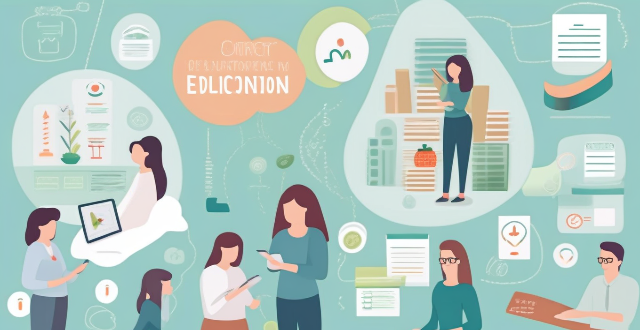
What are the key factors that contribute to women's scientific literacy ?
Scientific literacy is crucial for personal development and education, enabling individuals to engage with their surroundings. For women, achieving scientific literacy can be influenced by various factors such as educational opportunities, cultural and societal norms, support systems and resources, workplace environment, policy and legislation, community and media representation, and personal development and self-advocacy. Addressing these key factors can empower women with the scientific knowledge needed to thrive in an increasingly technological world.
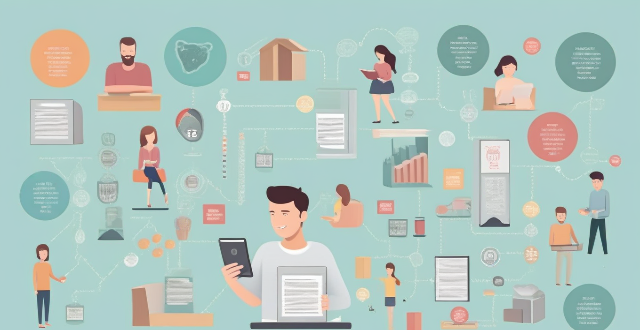
What skills do young people need to effectively participate in climate action ?
The article discusses the various skills that young people need to develop in order to participate effectively in climate action. These skills include scientific literacy, critical thinking, communication, collaboration, advocacy, practical skills, financial literacy, emotional intelligence, and digital literacy. The article emphasizes that having a blend of these skills will enable young people to contribute meaningfully to efforts aimed at mitigating the effects of climate change.
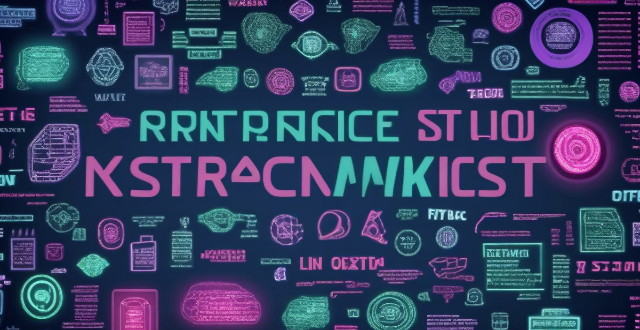
What are the benefits of having a strong digital identity ?
The importance of a strong digital identity is highlighted in this text, which outlines several benefits including enhanced privacy and security, improved reputation management, greater control over online presence, better access to opportunities, and increased influence and credibility. The author emphasizes the need for individuals and organizations to manage and protect their digital identities to position themselves for success in today's interconnected world.

How does scientific literacy among women affect their decision-making abilities in healthcare and environmental issues ?
The level of scientific literacy among women significantly influences their decision-making abilities in healthcare and environmental issues. Scientifically literate women are better equipped to access, understand, and critically evaluate health information, leading to healthier lifestyle choices and more effective communication with healthcare providers. They also show greater awareness of environmental issues and are more likely to adopt sustainable practices, engage in conservation efforts, and advocate for evidence-based policies. Enhancing scientific literacy among women is crucial for empowering them to make well-informed choices that benefit both their own health and the environment.

How can governments encourage and improve financial literacy among citizens ?
Governments can encourage financial literacy by implementing education programs, offering accessible financial services, and enforcing consumer protection regulations. This will help citizens make informed decisions about their money, investments, and debts.
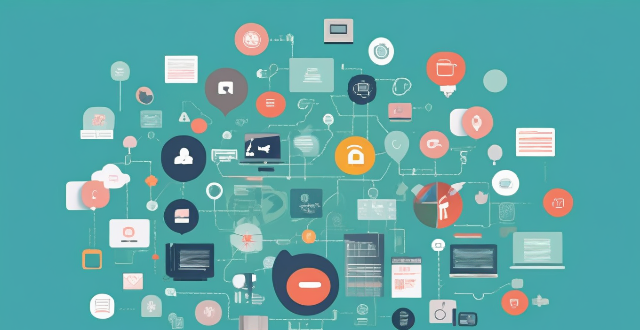
What is digital marketing ?
Digital marketing is the use of digital channels to promote products or services. Key elements include SEO, social media marketing, email marketing, content marketing, PPC advertising, affiliate marketing, online PR, data analytics, mobile marketing, and influencer marketing. Benefits of digital marketing include cost-effectiveness, targeted audience reach, measurable results, global reach, and personalization.
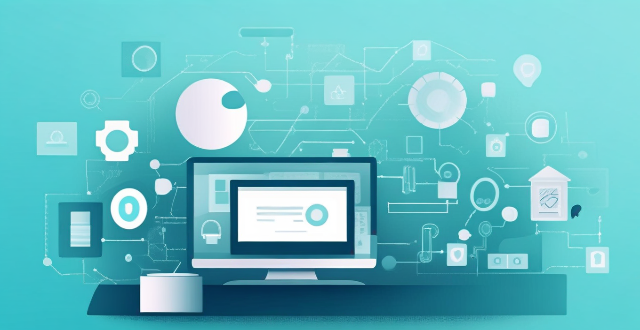
How does digital identity impact personal privacy and security ?
The article discusses the impact of digital identity on personal privacy and security. It highlights the risks associated with data collection, cybercrime, surveillance, phishing attacks, social engineering attacks, and ransomware attacks. The article emphasizes the importance of protecting digital identity by using strong passwords, enabling two-factor authentication, and being cautious when sharing sensitive information online.
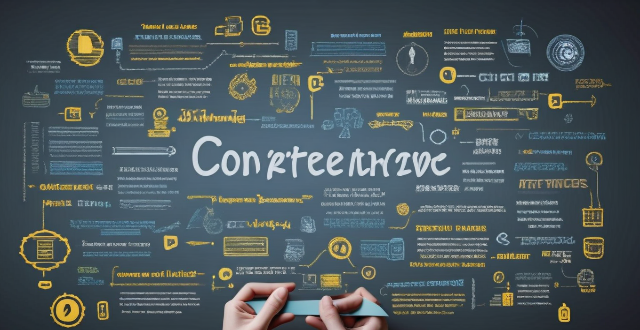
How can small businesses effectively use digital marketing ?
This text offers a comprehensive guide for small businesses to effectively utilize digital marketing. It outlines six strategies: developing a strong online presence through website, social media, and content marketing; leveraging local SEO by optimizing Google My Business listings and incorporating local keywords; investing in pay-per-click advertising with targeted ads and retargeting; harnessing email marketing by building lists and segmenting them for personalized communication; collaborating with influencers for expanding brand reach and credibility; and tracking performance using analytics tools, A/B testing, and customer feedback. The article emphasizes the importance of staying updated with digital trends and maintaining a consistent brand image across all platforms.

What are the challenges faced by businesses in digital marketing ?
The text discusses the various challenges faced by businesses in digital marketing, including staying up-to-date with technology, data privacy and security concerns, generating measurable results, content creation and management, search engine optimization (SEO), social media marketing, customer acquisition and retention, adapting to consumer behavior, budgeting and resource allocation, and lack of expertise. Addressing these challenges proactively can improve digital marketing efforts and achieve better results online.

How important is SEO in digital marketing ?
The text discusses the significance of SEO in digital marketing, highlighting its role in increasing visibility, cost-effectiveness, high conversion rates, long-term results, competitive edge, measurable outcomes, user experience improvement, and attracting local customers. It emphasizes that SEO is a crucial strategy for businesses to establish a strong online presence and compete effectively in the digital marketplace, contributing to both short-term and long-term success in digital marketing endeavors.
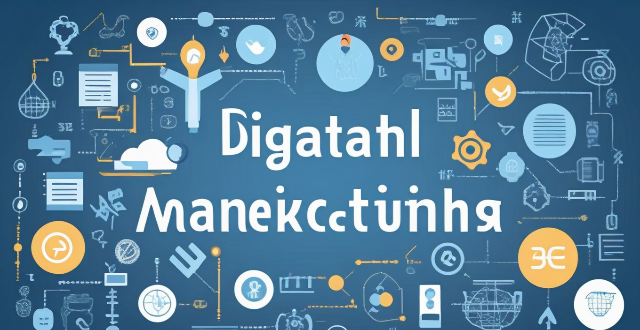
What are the benefits of using digital marketing for a business ?
The text discusses the advantages of digital marketing for businesses, which include improved targeting, cost-effectiveness, increased brand awareness, better customer engagement, and measurable results. It highlights that digital marketing allows companies to reach their ideal customers more effectively, save money compared to traditional marketing techniques, promote their brand consistently online, engage with customers on a deeper level, and track the performance of their campaigns for continuous improvement.
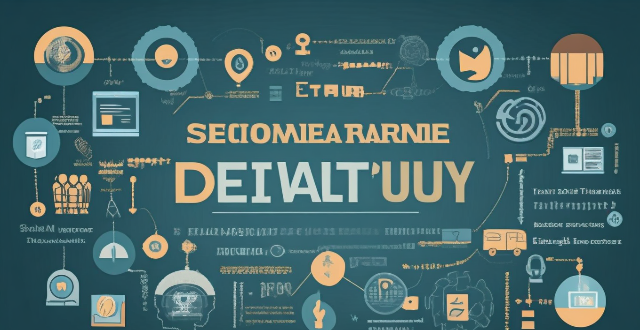
What is digital identity and why is it important ?
The text discusses the concept of digital identity, which encompasses all online information about an individual or entity. It includes personally identifiable information (PII), online accounts, digital footprints, and behavioral data. The importance of digital identity is highlighted in terms of security and privacy, trust and verification, personalization and convenience, and reputation management. Managing one's digital identity is crucial for protecting against fraud, preserving privacy, ensuring secure online transactions, accessing services, enjoying tailored experiences, streamlining processes, and maintaining a positive online presence.

How does digital identity verification work in online transactions ?
Digital Identity Verification in Online Transactions: A Comprehensive Guide Digital identity verification is a crucial aspect of online transactions, ensuring the authenticity and security of users. This process involves collecting personal information, verifying it against reliable sources, employing multi-factor authentication, using encryption techniques, and implementing monitoring systems to detect fraudulent activities. By following these steps, businesses can protect their customers' sensitive data and maintain trust in the digital marketplace.
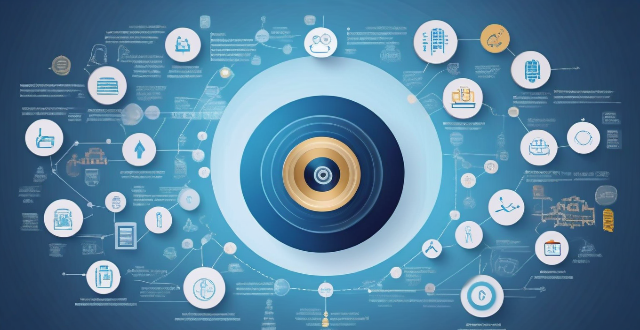
How has digital marketing changed the way businesses operate ?
Digital marketing has revolutionized the way businesses operate by providing increased reach, better insights, cost-effectiveness, improved engagement, and real-time results. It allows businesses to connect with a global audience through various digital channels, track customer behavior and preferences, control their marketing budgets, build stronger relationships with customers, and monitor the success of their campaigns in real-time. As technology continues to evolve, it will be interesting to see how digital marketing further impacts business operations in the future.

How can I protect my digital identity online ?
In today's digital age, protecting your online identity is crucial. Cybercriminals are constantly on the lookout for ways to exploit personal information for financial gain or other malicious purposes. Here's how you can safeguard your digital identity: Use strong and unique passwords, enable two-factor authentication (2FA), keep software up to date, be cautious with personal information, use secure networks, monitor your online presence, and educate yourself about cybersecurity. By following these steps, you can significantly enhance the protection of your digital identity and reduce the risks associated with being online.
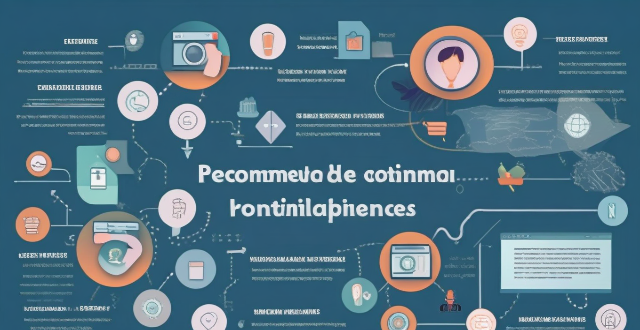
Can you recommend any online learning resources for digital marketing ?
The recommended online learning resources for digital marketing include Coursera, Udemy, HubSpot Academy, LinkedIn Learning, and Skillshare. These platforms offer courses on various aspects of digital marketing, such as search engine optimization (SEO), social media marketing, branding, customer engagement, data-driven marketing, content creation, paid advertising strategies, building a strong online presence, creating compelling visuals and copywriting for social media ads, inbound marketing methodologies, creating valuable content, developing a successful content strategy, core principles of digital marketing, advanced social media tactics, growth hacking techniques, email marketing fundamentals, and more. These resources provide learners with practical tools, frameworks, and real-world examples to apply in their work.

Which digital resources are most helpful for remote learning ?
Remote learning has become increasingly popular due to the COVID-19 pandemic. With the help of digital resources, students can continue their education from home. Here are some of the most helpful digital resources for remote learning: Online Learning Platforms, Video Conferencing Tools, Virtual Whiteboards, Online Libraries, Interactive Learning Tools, and Communication Tools. These resources provide students with access to high-quality educational content, interactive features, and collaborative tools that enhance the learning experience. By utilizing these resources, students can continue their education from home while staying engaged and motivated.
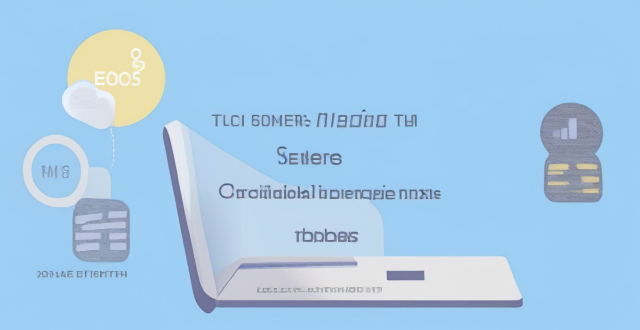
How do I create a secure digital identity for myself ?
Creating a secure digital identity is crucial in today's digital age. Here are some steps you can follow to create a secure digital identity: choose a strong password, enable two-factor authentication, keep your software up-to-date, be cautious with personal information online, use encryption tools, and monitor your online presence. By following these steps, you can protect your personal information and reduce the risk of identity theft or cyber attacks.